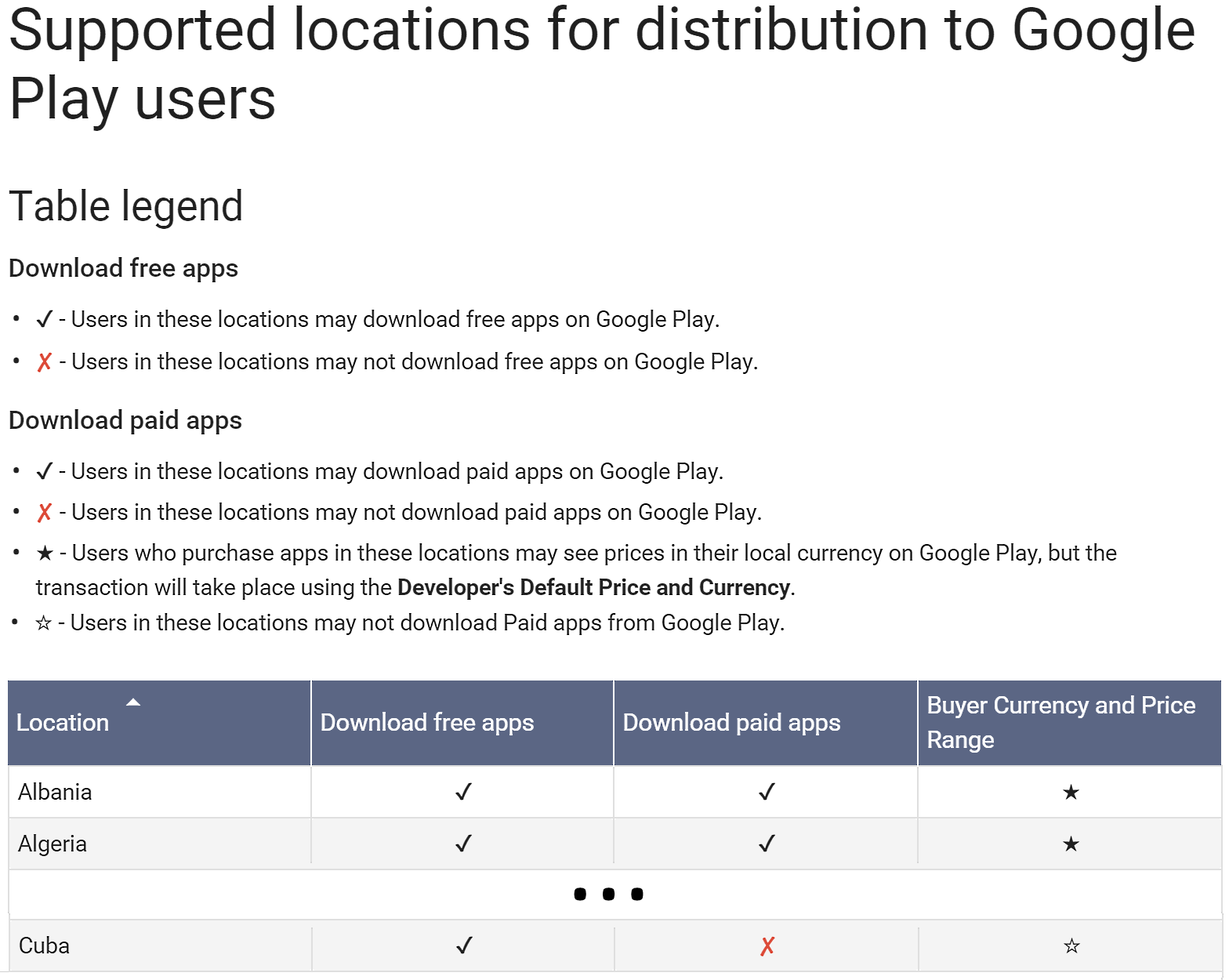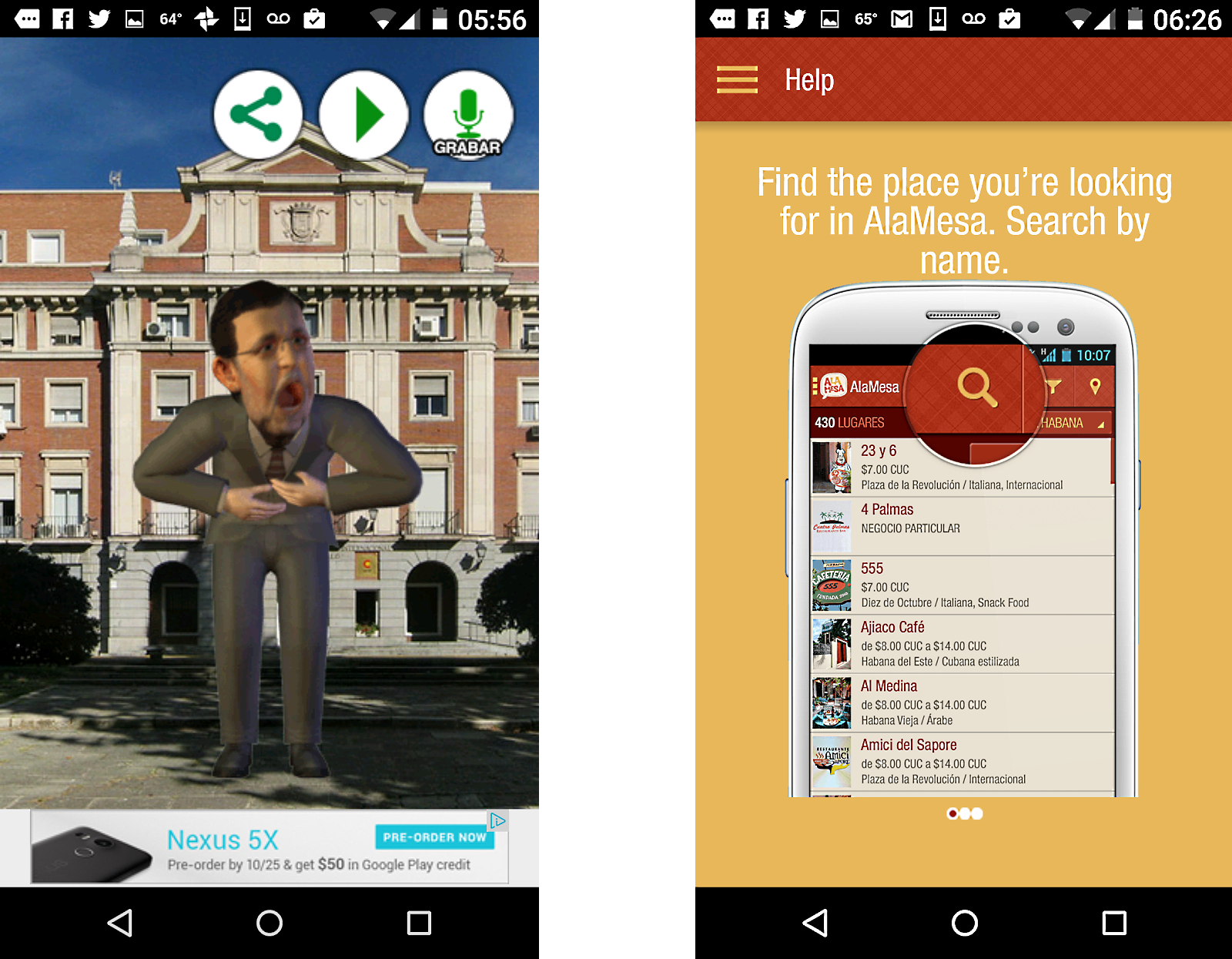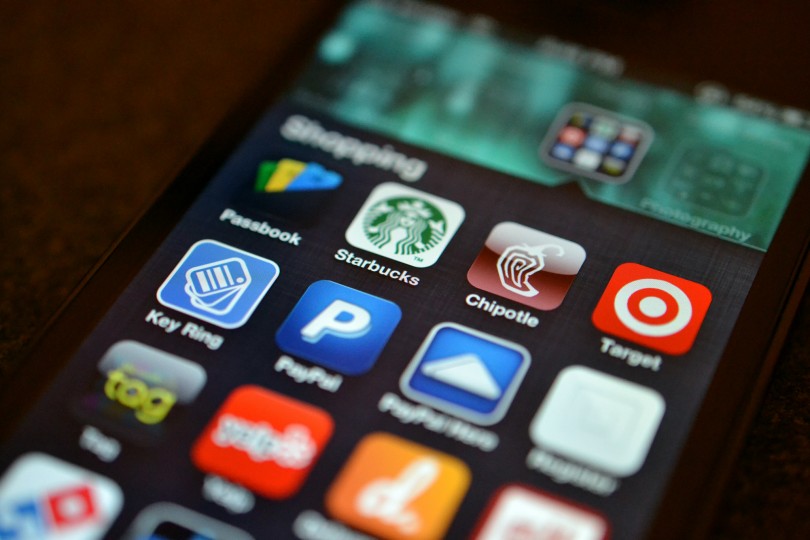 aNewDomain — Can Cubans write and sell apps in U.S. app stores, like Google Play and Apple’s App Store? It’s a question I’ve been trying to answer through research, a close reading and simply asking. Still, there’s no definite answer.
aNewDomain — Can Cubans write and sell apps in U.S. app stores, like Google Play and Apple’s App Store? It’s a question I’ve been trying to answer through research, a close reading and simply asking. Still, there’s no definite answer.
In September, the Office of Foreign Assets Control (OFAC) eased trade restrictions on Cuba. The reduction was across the board — commercial, financial transactions, travel, even support for remittances to people in Cuba were included. But the restriction that grabbed my attention was for telecommunications and Internet-based services. The OFAC states:
Mobile applications. To further enhance the free flow of information to, from, and among the Cuban people, OFAC is adding a provision in section 515.578 to authorize the importation into the United States of Cuban-origin mobile applications. In addition, OFAC is authorizing the employment of Cuban nationals by persons subject to U.S. jurisdiction to develop such mobile applications.”
To me, that pretty clearly states that the U.S. government will allow Cuban programmers to sell mobile apps in the U.S. market. The first question that comes to mind: Will Cuba let their programmers do that? We have to remember that “computer programmer” is one of the jobs that has been authorized for self-employment by the Cuban government.
So, can a Cuban programmer develop an app and sell it in the digital stores of Apple, Google, Amazon and Microsoft?
Rules Still Unclear
These new rules are not completely clear, so I decided to ask the U.S. Department of the Treasury for clarification. My questions are below:
- Why is the regulation limited to “mobile” apps and how do they define “mobile” app since Microsoft (Windows 10) and Google (Android) are moving to software that can run on a phone, tablet, laptop or desktop PC — it seems that mobility is a property of the device running the app, not the app itself.
- Can the application be developed for a U. S. business, as opposed to an individual?
- Does the Cuban programmer have to be a self-employed individual (a “cuentapropista”) or could the app be developed by a Cooperative or a government enterprise?
Here are the Treasury’s answers:
- The application can be developed for a U. S. business.
- OFAC does not have a definition of “mobile” and, if an individual has a specific question as to whether certain software qualifies for the general license, they can contact OFAC.
- They have no comment on the reason for limiting the ruling to mobile apps.
- They have no comment on the question of dealing with cooperatives or Cuban government enterprises.
That’s just one aspect of the equation. I also sent queries to Google, Amazon, Microsoft and Apple asking if they had plans to offer (or were working on) paid Cuban apps in their online stores. As of yet, none of them have replied.
That said, if you look at the chart below, you can see that Cubans can download free apps from Google Play, but not paid apps. Does this work in reverse? Can Cubans upload free apps, but not paid ones?

During a recent, somewhat frustrating trip to Cuba, U.S. Commerce Secretary Penny Pritzker stated that, “There is much we in the United States do not fully understand about the Cuban economic system.” While I would not want to suggest that U. S. regulations are as hard to understand as Cuba’s, this one is muddy.
Two Cuban Mobile Apps Available — for Free
I have also been able to download two free apps from Cuban developers from Google Play. The first, AlaMesaCuba restaurant guide, was pointed out to me by a reader, Rodney Hernandez. The publisher says an iTunes version will be available soon. The FAQs on the Google Play site state that AlaMesaCuba, “Has been created and developed by Cubans living in Cuba” and their domain name registrant has a Cuban address and phone number, so Cubans are working on the app.
But there is a U.S. tie as well. The website says the app is “offered by” ISLA Management LLC and the “developer” address is that of Inca Investments, a Miami investment firm that specializes in Latin America.
One more thing — I could not find the AlaMesaCuba app by searching Google Play on my Nexus phone, but I was able to install it from the website. When I first ran AlaMesa, it downloaded the current database. I guess the database is maintained in Cuba and updated periodically.
I’ve never encountered an app that was listed online but not on my phone before — is that common? Does it have something to do with fuzzy regulations?

The second app is KickRajoy, written by a Cuban living out of the country. KickRajoy has ads at the bottom of the screen (AlaMesaCuba does not). I assume that the programmer gets a portion of that ad revenue. Does AlaMesaCuba generate revenue in fees for listings? Have their U.S. partners paid the developers as an investment?
Are there other apps being sold in the U.S. with payments going to Cuba? Note that Cubans are now allowed to write apps for companies and clients — they do not have to be in Google’s store, or anyone else’s.
The best way to get some clarification on this issue is to upload some Cuban software for sale and see what happens — in both the U. S. and in Cuba. Any takers?
For aNewDomain, I’m Larry Press.
Ed: A version of this story ran on Larry Press’ laredcubana. Read it here.
Featured image: Shopping with iPhone by Jason Howie via Flickr
Body images: Larry Press













